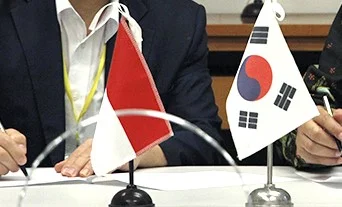Investment levers and sweeteners: FDI as an economic diplomacy tool
/In late 2018 I once again had the opportunity to contribute a piece for the Financial Times’ fDi Magazine. This time, I chose to explore how FDI functions as an economic diplomacy tool. The following is an excerpt from the article I wrote:
The transformative potential of FDI to develop economies, transfer knowledge and technical know-how, boost innovation, exports and facilitate integration into global value chains is well-documented. FDI also remains by far the largest source of external finance in developing countries worldwide. Little wonder then that a growing number of countries are leveraging their profiles as major outward investors to enhance trade and broader economic ties with key target countries – often emerging or developing markets.
The Japanese have long espoused this concept. In many investment promotion agencies (IPAs) and broader trade and investment organisations, you’ll find a ‘Japan Desk’ helping Japanese businesses to understand, access and succeed in the market, while assisting their host organisations with their investment pipelines. This win-win approach of foreign helpdesks embedded in IPAs has been adopted by Japan in markets ranging from Indonesia to India, and Thailand to Vietnam, and the concept has been replicated by other markets such as South Korea, and more recently supranational bodies like the EU, whose helpdesk in Indonesia’s IPA, BKPM, I established and led for two years.
Other markets such as the UK have adopted alternative approaches to leveraging outward FDI for economic diplomacy. As Britain’s imminent departure from the EU spurs the country into forging and strengthening economic ties elsewhere, the Government has been courting emerging markets in places like Africa with initiatives designed to spur foreign investment. Take for example Invest Africa, a £16.4 million programme established in 2017 and led by the UK’s Department for International Development (DFID), which seeks to attract £1 billion of FDI in the manufacturing sectors in East Africa by 2021. More recently, during a weeklong tour of the continent in August 2018, Prime Minister Theresa May announced £4 billion in government investment to support economic development across Africa, which the Prime Minister expects to be matched by private sector investment. The extent to which this investment ‘charm offensive’ translates into new trade agreements and an ‘exports dividend’ for UK plc. remains to be seen, and it looks like a significant charm offensive on a global scale is going to be needed if the UK is going to come even close to offsetting the trade and investment disruptions Brexit is threatening to unleash on its ties with the world’s largest single market, the EU.
To read the remainder of the article, visit the fDi Magazine site here








